|
The Tools of Neuroscience Experiment, ed. by John Bickle, Carl Craver, and moi. It's coming out with Routledge, this December 31, 2021.
Below you find the flyer with discount code and info about ordering review copies! It's happening!
0 Comments
Dear friends of artificial noses, or noses plugged,
Feel free to join the inaugural MIT Osmocosm virtual conf: www.osmocosm.org TOMORROW TILL SATURDAY Thu 28th-Sat 30th october over zoom 9am-4pm Totally free and so many great speakers from scitech folks, artists, designers, medical and law professionals and students from all ages, disciplines and four continents! Come listen or participate in the ideathons as we try to create dog-inspired medical scentphones that can detect Covid in 0.4sec with 99% accuracy for every corner of the planet!” There’s people who talk smells, dogs, bioelectronic noses, and other stuff. At least one familiar name, too. Cheers, Ann The copy edits arrived!
(Thus: more on that front in time!) The Tools of Neuroscience Experiment: Philosophical and Scientific Perspectives Ed. by John Bickle, Carl Craver, Ann-Sophie Bawich Forthcoming (December 2021?) with Routledge! This volume establishes the conceptual foundation for sustained investigation into tool development in neuroscience. Neuroscience relies on diverse and sophisticated experimental tools, and its ultimate explanatory target--our brains and hence the organ driving our behaviors--catapults the investigation of these research tools into a philosophical spotlight. --> The book also contains a co-authored chapter with Lu Xu where we will give a first person account on how she used SCAPE microscopy to investigate mixture coding in olfaction, discovering a hitherto unknown coding mechanism at the periphery! Admittedly, it's been a bit quiet this summer. But a few things have been brewing... With a deleted Twitter account and avoidance of any things online (yes, that includes email), I had time to read, think, write, and do a number of things that have piled on and were postponed for a year now (pandemic-related). I also did that sports thing I plan each new year. First good news: the lab is now really coming to a start. (We'll call it THE STINK TANK.) The renovations are moving toward the end. Currently, the estimate is the end of August. The olfactometer is close to being finished. The EEG has already arrived. AND my first graduate student and two undergraduate interns will join me this Fall. Lots of things we need to figure out, tinkering and testing, before we can go ahead with ideas. But this is an exciting start after a year's wait and uncertainty. You can see the current lab status pictures below. Second good news: there will be a TEDxCambridge talk online this Fall/Winter... I cannot hide how excited I am about this. The team has been amazing and I learned ... SHIT TONS (official metric). More on that in time, too. Picture below, too. I may include that one in my tenure file... The third good news is that John Bickle, Carl Craver, and I have submitted our edited volume on Experimental Tools in Neuroscience to Routledge. It might come out already Winter 2021!! For this, Lu Xu (Firestein lab, Columbia) and I co-wrote a first hand account on her application of SCAPE microscopy in odor mixture coding (pointing toward the cognitive foundations of tool use). Additionally, a new paper is coming out soon (Perspectives on Science, proofs have been sent off), another co-authored one is under review. Oh yeah... and my criticism of the arguments behind this recent revival of panpsychism in some corners of the philosophy of mind (and Phil Twitter) is coming out as a book chapter soon, too. I promised, I'd write about it. So stay tuned. ;-) Summer has been busy. So, hopefully, things keep moving well. Fingers crossed! Meanwhile, stay safe, well, and sane ;-) I reviewed Larry Shiner's "Art Scents" in Perception. If you are interested in the question of whether smells can be art(ful) and how to conceive of an aesthetics of olfactory experience, check it out.
Ekin Erkan reviewed "Smellosophy" for Perception.
He nailed it in the Dennett sense: expressing an idea in such a way that the author goes... could not have written it better. And... would love to have written it like that myself.
I gave a short (15 min) talk at AChemS as part of a symposium on its founder Max Mozell.
Mozell's chromatographic theory: A molecular basis of cognitive behavior? Max Mozell's chromatographic theory, he told me for an interview in 2018, never was completed. His hypothesis states that the mucosa in the nasal epithelium yields a spatially differentiated pattern of odorants with different sorptive rates. Mozell formulated this idea before the olfactory receptor discovery in 1991 and the availability of genetic techniques that allow for target-specific probing of olfactory sensory neurons. His theory does not find many adherents in contemporary olfactory research, now focusing on decoding the stimulus with machine learning and neural principles with optogenetics. Notwithstanding, there are good reasons to reengage with Mozell's theory and translate some of its critical tenets into the 21st century. This talk highlights Mozell's interest in linking sniffing behavior to a molecular physiological mechanism at the periphery. It asks: What questions about the olfactory process did Mozell's theory address that may still be of value today? (Video below) I was interviewed on smell and COVID, alongside Barry C. Smith and Chrissi Kelly (AbScent), in the New Statesman.
Link to article: Searching for sense: what we lose when smell deserts us |
AuthorAnn-Sophie Barwich Archives
July 2024
Categories |
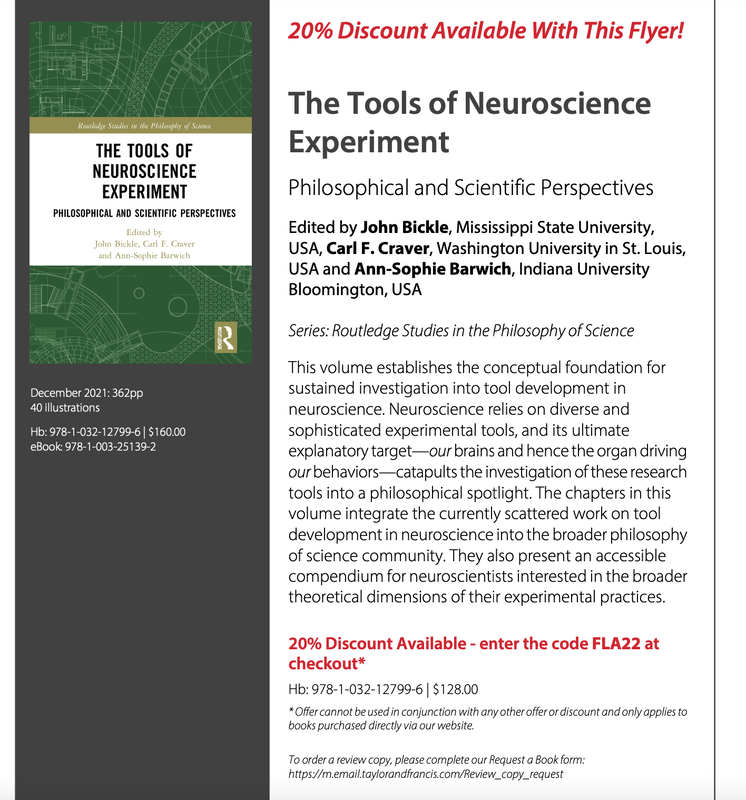
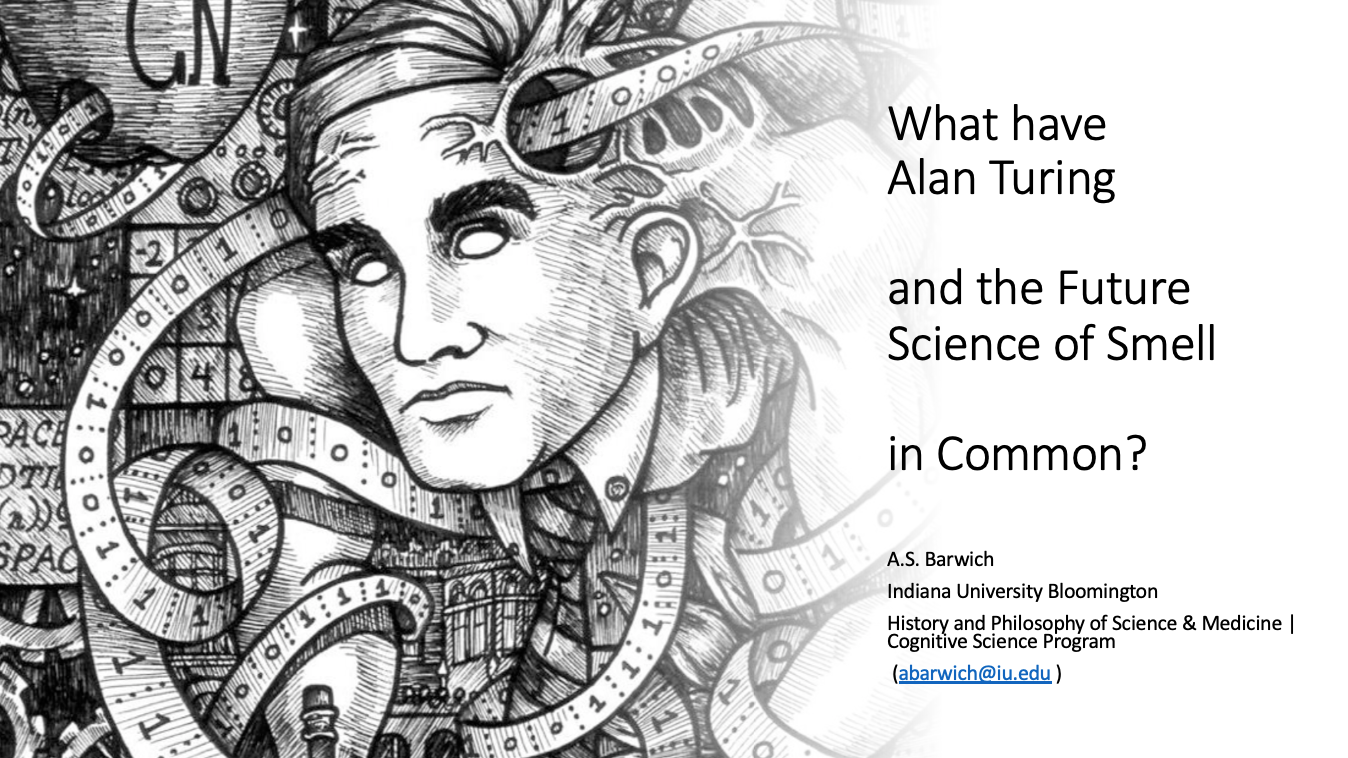
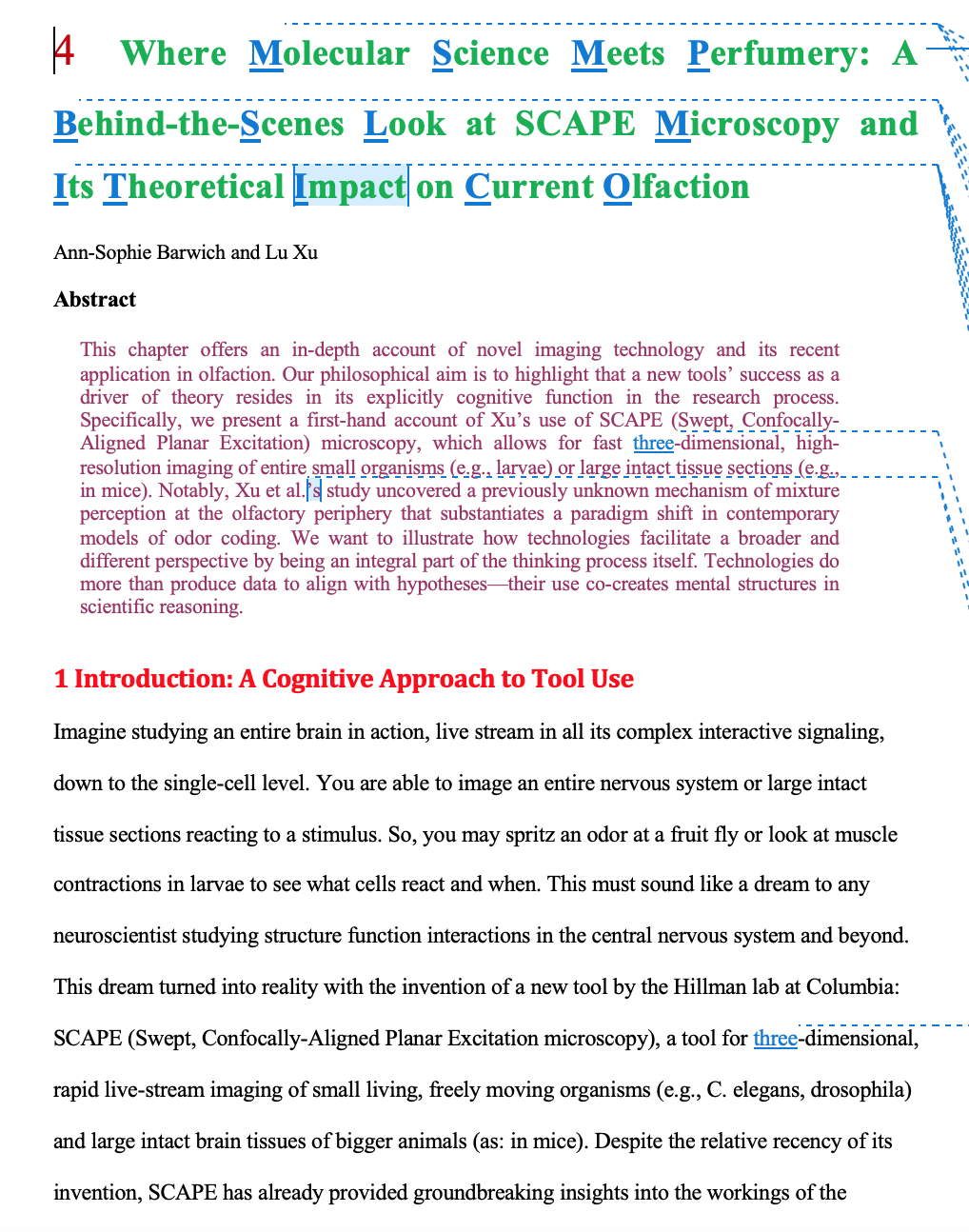
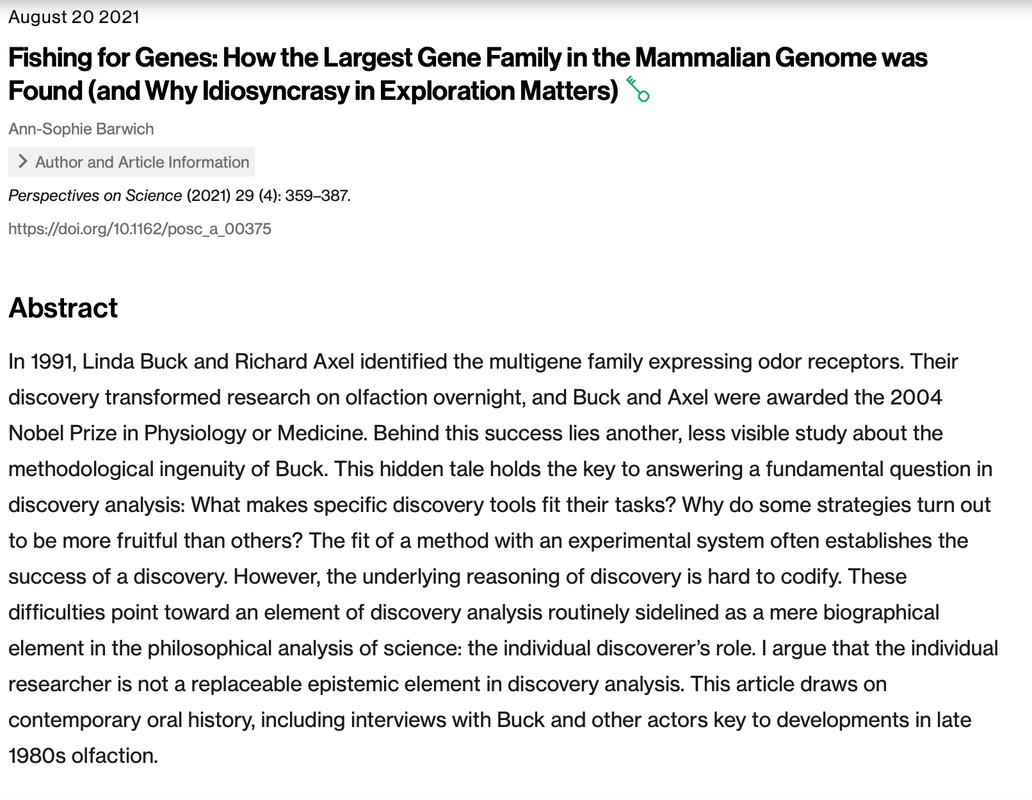
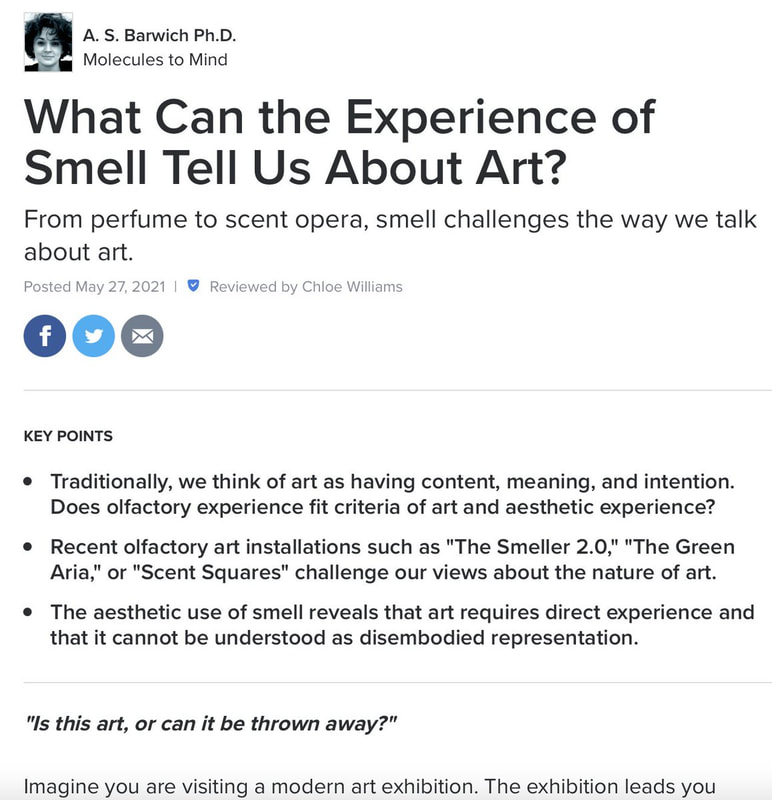
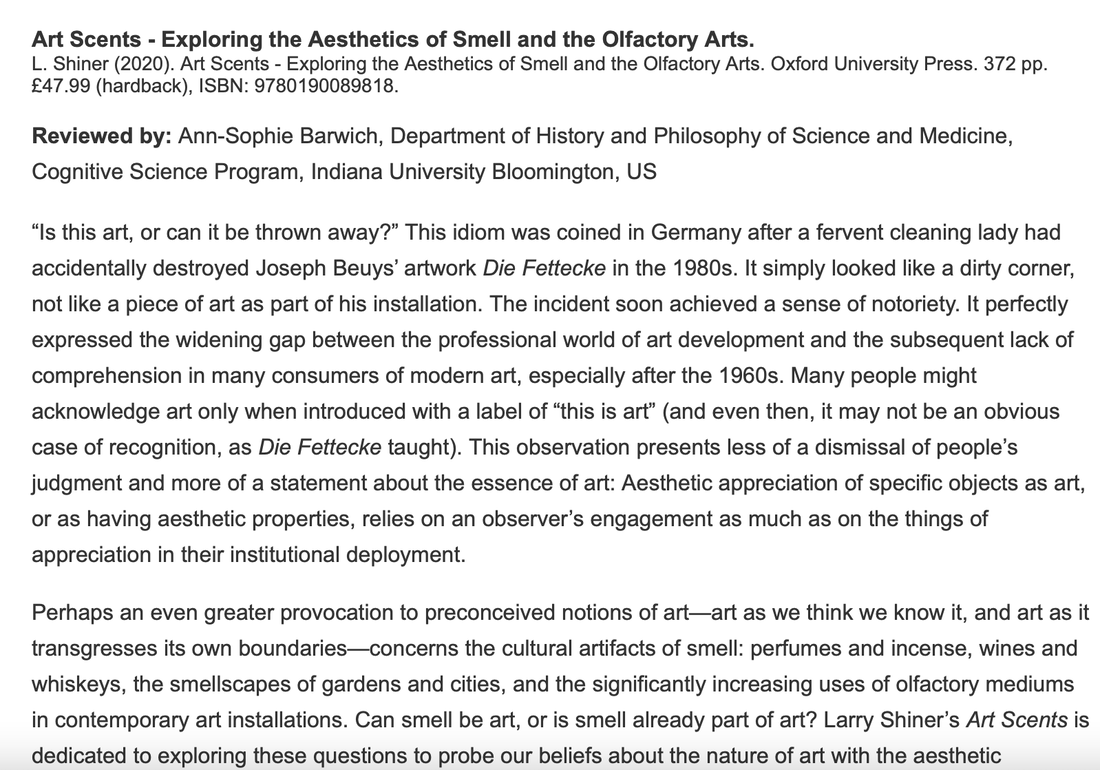
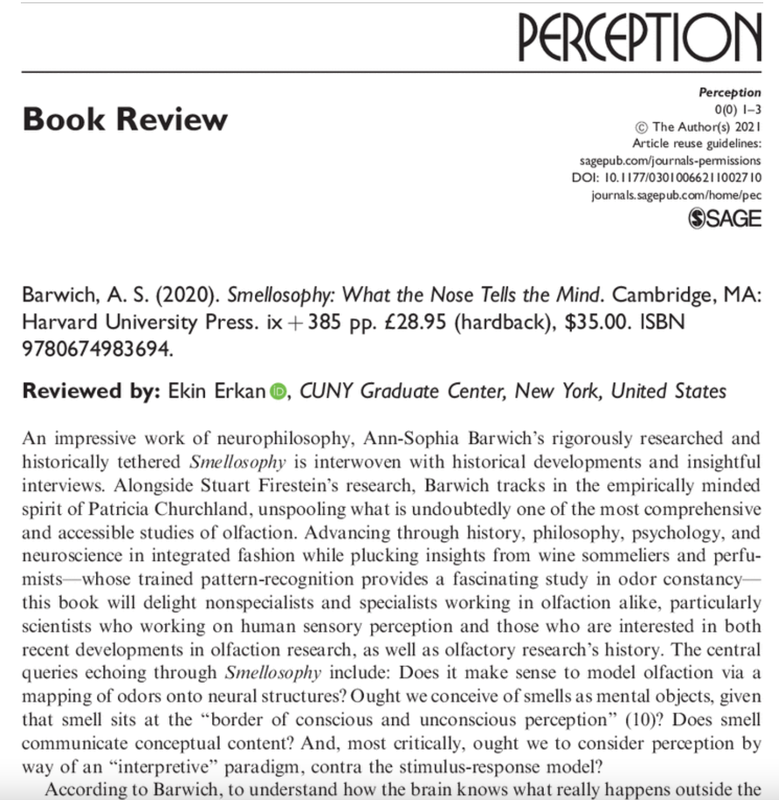
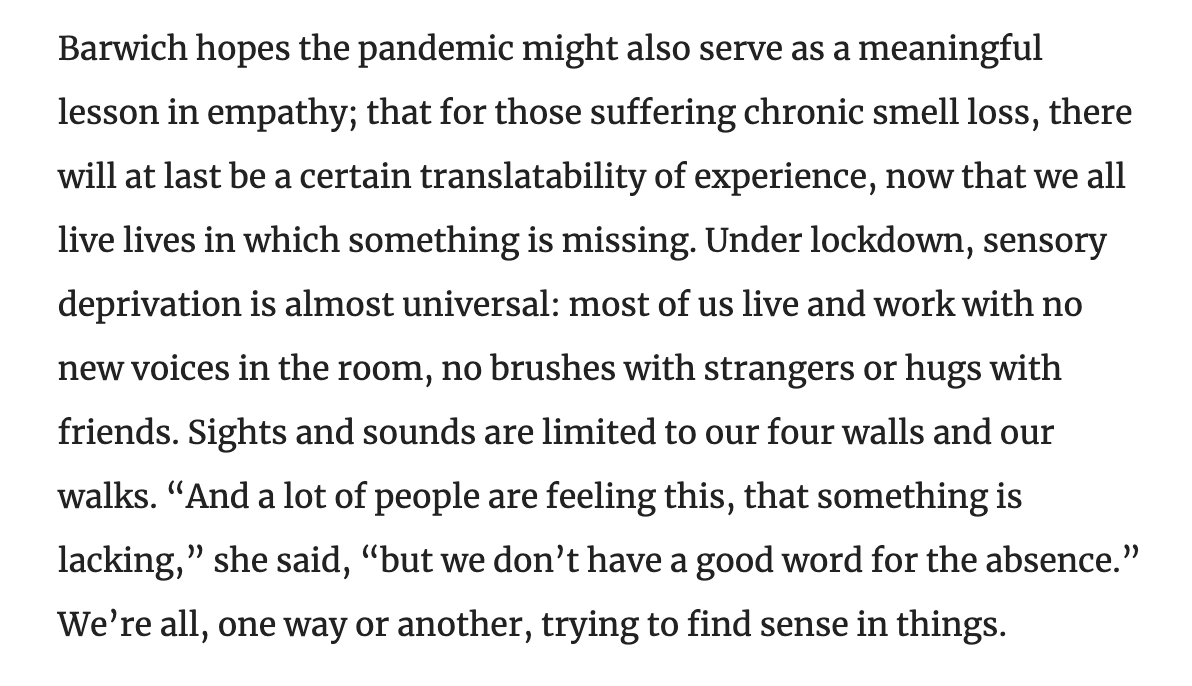
 RSS Feed
RSS Feed